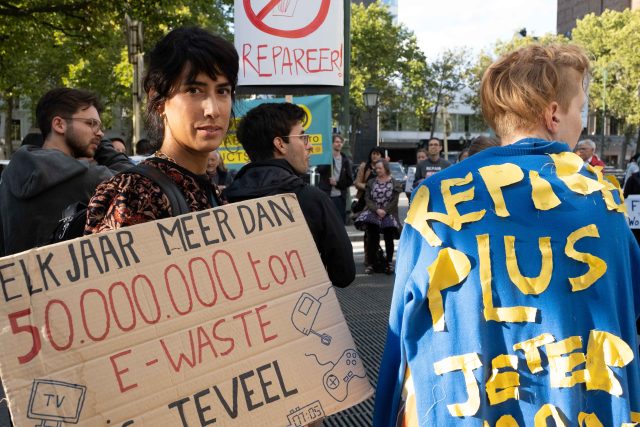Originally published at: What’s the latest on Right to Repair in the EU? And what it means for the UK - The Restart Project
Heard murmurings about the recent EU legislation but don’t know what it means? Don’t worry, we’re here to debrief about some pretty big steps forward for EU consumer rights of repairability – progress which the European Right to Repair Campaign has worked on tirelessly over the last year.
It’s a huge piece of legislation because for the first time, it goes beyond just mandating design requirements for products (the “ecodesign” regulations which for example will make future smartphones more repairable from 2025 – at least in the EU, no word yet on the UK government’s adopting these!) and instead focuses on obligations for manufacturers and sellers to try to ensure that consumers actually can get their products repaired.
There was a lot of media hype surrounding the agreement among EU institutions, with claims that this secures a full right to repair…we disagree and here’s why:
Now, we’re happy that this legislation starts tackling some of the barriers to repair that we’ve been documenting for many years. For example, by asking that repair prices are “reasonable”, it helps to not deter people from repairing. But we’ll have to see how this plays out in practice, as reasonable is not easy to quantify. A second massive barrier is the use of parts-pairing to limit the use of second-hand or compatible spare parts. The directive should tackle this aspect, but we know the devil is in the details and we suspect manufacturers will try to find loopholes.
A major sticking point for us is that most of the legislation only covers the same product categories for which design requirements already exist. It fails to address the current shortcomings of many manufacturers, neither providing parts nor repair services for products like small kitchen appliances (kettles, toasters, coffee makers…), audio products (like headphones) and many more of the items frequently seen at repair events.
It’s not all bad though! Interestingly, the legislation extends the total legal guarantee of a repaired product by 12 months, therefore incentivising consumers to choose repairs – rather than replacements during the legal guarantee period. This will not however prevent manufacturers and retailers from offering an instant replacement product instead, which might be more appealing for those who are pressed for time. So it’s hard to estimate the actual impact this will have in slowing down our growing e-waste mountain.
Why else is this legislation important to Restart’s mission?
- We seem to be trendsetters in mapping repair, with the EU moving towards mandatory mapping of all repair options – something that we’ve been prototyping at Restart on a smaller scale and advocating for via London Repairs for years
- We hope that there will be a huge impact from EU member states being required to promote repair. They’ll have to adopt one of four strategies including, instituting repair funds/vouchers; VAT reduction for repair; information campaigns promoting repair; and funding to support community repair initiatives. How these options are implemented may vary massively from country to country, but there’s major potential here!

What about the UK?
The Right to Repair Directive doesn’t change anything in the UK, other than further highlighting the UK’s delay to address regulations on repairability. This is why we are working hard on growing the list of organisations, politicians and businesses that support our Repair and Reuse Declaration.
We are currently working with Peers for the Planet to add right to repair into a consumer rights bill in the UK, and making sure that the voice of the repair movement is heard in the current WEEE (waste electricals) reform consultation.
So what’s next?
The unrelenting efforts of the Right to Repair Campaign have shown that progress is possible! But it won’t happen without an alliance of community repair activists, repair organisations, businesses promoting repairs and environmental organisations. No one in the media remembered to share that the original proposal from the European Commission was virtually empty, and that the repair friendly position by the Parliament – endorsing many of our campaign’s demands – was weakened by member states, evidently successfully lobbied by manufacturers.
We’ll keep putting pressure on these issues with partners in the UK and in the EU, working towards a real and universal right to repair!
We’ve attached the press release from the European Right to Repair campaign below. Keep an eye on the campaign’s website for a full assessment of the agreed text in the near future.
New EU law sets to make repair more affordable for selected products, campaigners push for widespread right to repair
[Images courtesy of Mark A Phillips, licensed under CC BY-NC-SA 4.0]